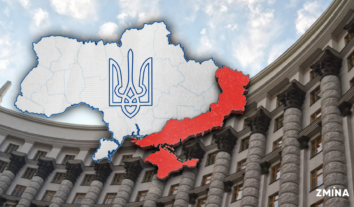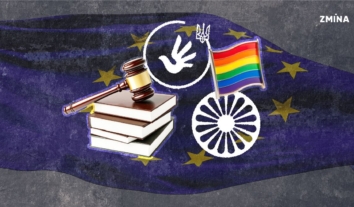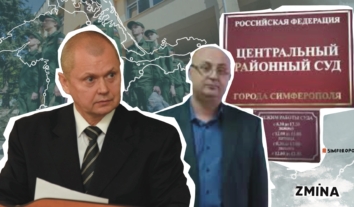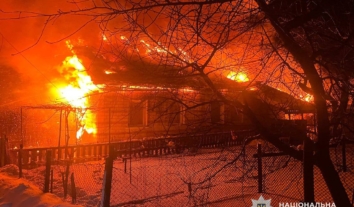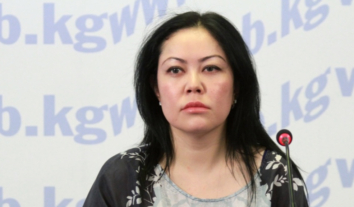Constitutional reform: Active population and passive authorities
The citizens of Ukraine have become more interested in the Constitution and the relating processes. It is evidenced by the results of the survey conducted by the Ilko Kucheriv Democratic Initiatives Foundation in cooperation with the Kyiv International Institute of Sociology at the request of the Center for Political and Legal Reforms. During two years, the sociologists asked 2,040 respondents the same questions about the constitutional reform. Thus, it was possible not only to find out the public opinion on this issue but to compare the results as well.
Lack of information
Ukrainian people are characterized by a rather low awareness of the content of the Fundamental Law. Half of the people have not read the text of the Constitution while about the third have read only some of its sections.
Almost half of the Ukrainians have not read the Constitution at all (49% in 2014 and 50.4% in 2015). Those, who have looked it through, were mostly trying to learn about their rights or did it during studies and at work.
Despite this, more than half of the respondents (57.1%) in 2015 answered they needed additional clarification about the proposed changes to the Constitution. The largest share of such people is from western Ukraine (69.4%), southern Ukraine (63.2%) and central Ukraine (61.8%). In eastern Ukraine, the share of those wanting to hear the explanation of the Constitution is 35.7%.
According to expert of the Center for Political and Legal Reforms Yulia Kyrychenko, the citizens of Ukraine have become more interested in the Constitution and the relating processes.
“The society is not indifferent. It is evidenced by not only the results of the poll, but my own observations as well,” Kyrychenko said. “I traveled across Ukraine in 2008 in and 2015 and communicated on this subject. I noticed that people have become more active for these seven years. Many are talking about the new Constitution. A number of citizens who have fully read the Constitution is increasing. For example, 22% of people in the government-controlled territories of Donbas read the Constitution. This is the highest index in Ukraine! The corresponding index in other areas is just 10%.“
The problem is that the essence of the constitutional reform is poorly covered, and the citizens are not properly involved in the process. It is not surprising that the number of Ukrainian who knows that it is the President of Ukraine who initiates amendments to the Constitution is rather small – no more than 10% on average. Only 5.2% of respondents know exactly what changes are planned to be introduced to the Constitution (it is 2.1% less than in 2014). About 50% of respondents know nothing. Such a situation can lead to the failure of constitutional reform.
However, the survey results show that the majority of the population (67%) considers it necessary to amend the Constitution, including 28% calling it an urgent issue that needs to be addressed immediately. 39% believe that such changes are necessary, but only after the situation in the country is stabilized. Only one in ten respondents does not see the need to amend the Constitution, and about a quarter have not formed a definite opinion, which is proof of improper attitude to the legal education, including on constitutional issues of our country.
To remedy the situation, it is necessary to pay more attention to the subject of the Constitution in schools by introducing the appropriate course to the curriculum. The young people studying in secondary and higher educational institutions should also be involved in this process. “The state should have shown the respect for the Constitution of Ukraine through culture, by opening the museums dedicated to the history of the Constitution, through educational activities and contests dedicated to this topic. After all, the future of Ukraine depends on it,” expert Yulia Kyrychenko believes.
Trust in experts is growing
Back to the survey results, the vast majority of respondents says that the most important task of the Constitution is “consolidation of human rights and freedoms”, thus emphasizing its practical, not formal value. However, only 14% of the respondents believe that it should consolidate the duties of citizens. The smallest percentage (up to three) answered that “the Constitution should be the agreement on dividing the power between the politicians.”
In 2014, 25.8% of respondents described the President as the only source of power in Ukraine, according to the Constitution. The number increased to 28.7% next year. The fact that such powers belong exclusively to the people of Ukraine was indicated by 56.6% of respondents in 2014 and 50.4% in 2015.
“Thus, we may argue that last year more people became misguided that some other person, except the people, was the source of power, according to the Constitution,” expert of the Center for Political and Legal Reforms Maksym Sereda said. “I believe we should search for the reasons in the human psychology. Since the level of dissatisfaction with the authorities has increased, fewer people want to associate themselves with them. Because if you say that the people are the source of power, then the frustration should be directed at the only source of power. However, we tend to blame ourselves even though ‘the collective unconscious’ at the end of the line. In my view, the Constitution is of secondary importance here.”
The majority of respondents (88%) remains convinced that highest bodies of state authority and officials violate the Constitution regularly or occasionally. Nearly half (52%) believe that this violation is regular and systematic. The vast majority of respondents (74%) believe that the violation of the Constitution is unacceptable under any circumstances. However, it is worth noting that almost 20% of respondents still see certain circumstances under which the violations of the Constitution are allowed.
While answering the question about drafting the amendments to the Constitution, the respondents gave preference to an independent body composed of representatives of different branches of government and independent experts (41.3% in 2014 and 45.6% in 2015).
Answers to the question “Who do you think should develop amendments to the Constitution?”: the special committee of the Verkhovna Rada of Ukraine (15.6% in 2014 and 8.8% in 2014), the special body under the President (6.9% in 2014 and 4.5% in 2015) were chosen by a small number of respondents. In addition, last year their number declined significantly. Another 20% of respondents believe that such a body should be the expert civil society organizations. Accordingly, only 10% of the population will trust the information about the content of the constitutional amendments from the authors of such changes and only 4% – from politicians. The majority of respondents (58%) believe that the independent experts and NGOs should deal with this issue.
As you can see, the Ukrainians started to trust more the members of the public and less the authorities in 2015. The politicians should pay attention to this circumstance when drafting the amendments to the Constitution of Ukraine.



